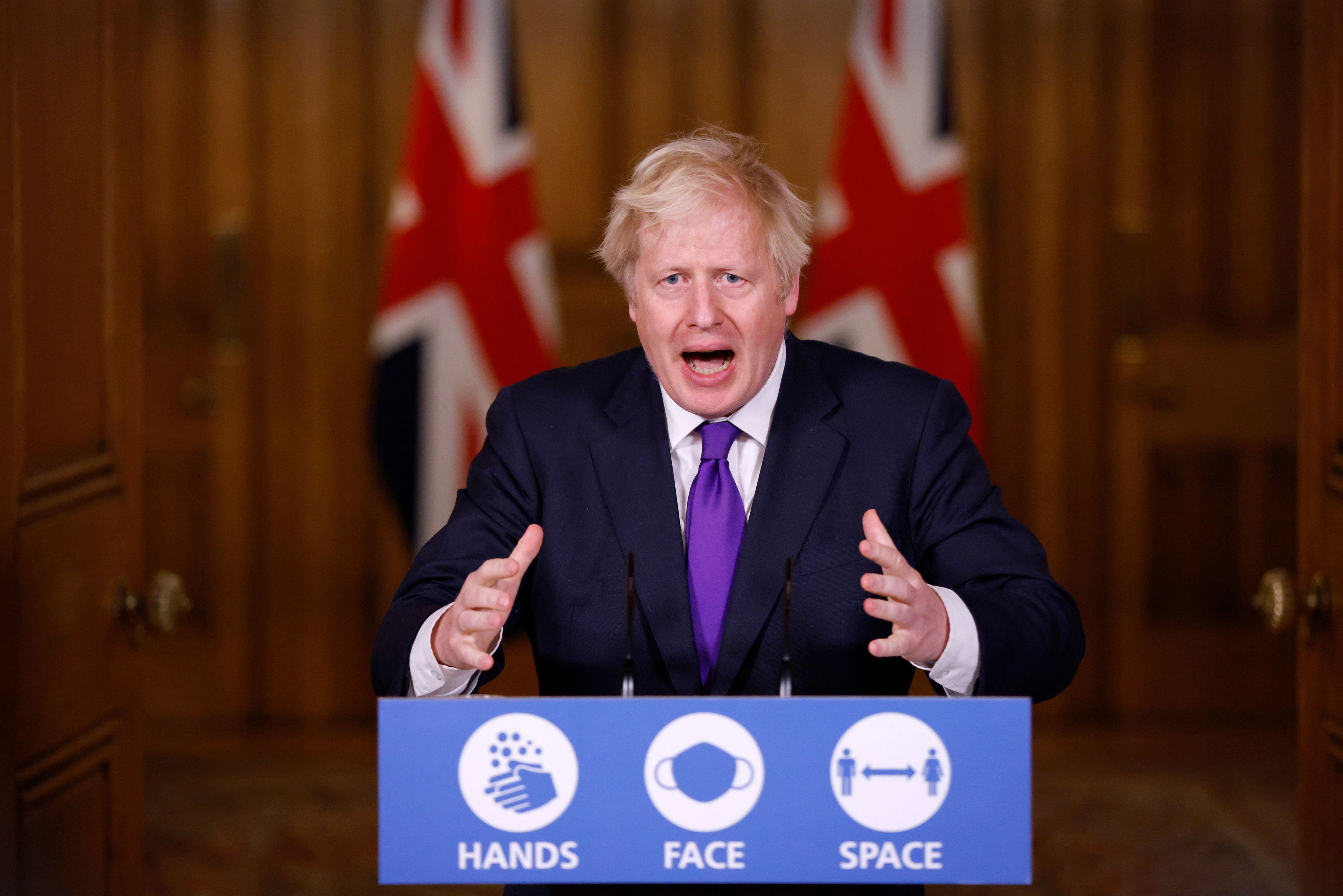Boris Johnson’s judgement on coronavirus has been found wanting – yet again
Editorial: At a time when it is so important that people trust those in authority to give them the right instructions, the prime minister has undermined his own credibility

Once more, Boris Johnson has been forced to eat his words. Right at the start of the coronavirus nightmare, the prime minister blithely dismissed suggestions that shaking hands might be a bad idea. In October, he accused Sir Keir Starmer of wanting to shut the country down, when the leader of the opposition “followed the science” in urging a circuit-breaker lockdown – only for Mr Johnson to order a national lockdown for November.
Just four days ago, he did it again. “We don’t want to ban Christmas,” he said, accusing the opposition of wanting to do precisely that.
Of course, the prime minister still does not want to ban Christmas, but no one ever did, and it was foolish of him to give the impression that he could be so sure about the course the virus would take even over a few days. Just as it was foolish to say that “it would be inhuman and against the instincts of many people in this country” to “cancel” Christmas.
It is inconvenient and a shame that Christmas will be so constrained, but we suspect that the instincts of most people in this country are that, if it has to be done, we have to get on and do it, as the prime minister himself accepted at his news conference yesterday, when he said “we bitterly regret” having to take further measures.
“When the science changes, we must change our response,” he said, and he insisted that it wasn’t “really” until Friday, “when we got the data on transmissibility”, that he had to take the extra measures to constrain the new variant in the southeast and east of England. But it was clear in the middle of the week, when he dismissed the possibility of cancelling Christmas, that infections were rising again in several parts of the country.
Even if it had been the right decision early last week to insist on going ahead with the Christmas easing of the rules, it was a mistake to be so definite about it and to turn it into a party-political joust.
It looks as if Mr Johnson assumed that the worst was over when the vaccinations started, despite all the scientific and medical advisers telling him that the vaccine would make no difference to the current wave of infections. Thus the prime minister was unprepared for the apparent change in the properties of the virus and once again too slow to respond. There is nothing wrong with the prime minister wanting to save jobs and wanting families to see each other. But this is a matter of character and of judgement, and Mr Johnson has repeatedly been found wanting.
Every time it has come to a difficult choice, he has seemed to prefer to believe that the worst will not happen, as if wishing made it so. Worse than that, he has attacked those who thought it might be prudent to act more quickly as pessimists, “one-club golfers” or “inhuman”.
The prime minister’s misjudgements have consequences. They undermine public confidence. At a time when it is so important that people trust those in authority to give them the right instructions in the public interest, we cannot afford a leader whose word is liable to be disbelieved because he has had to go back on it so often.
It is impossible to avoid drawing a comparison with Sir Keir, who has twice now called for the prime minister to act, been mocked for it, and then been proved right. The conclusion is hard to resist that the government would have done a better job in managing the virus if Sir Keir had been leading it.



Join our commenting forum
Join thought-provoking conversations, follow other Independent readers and see their replies
0Comments